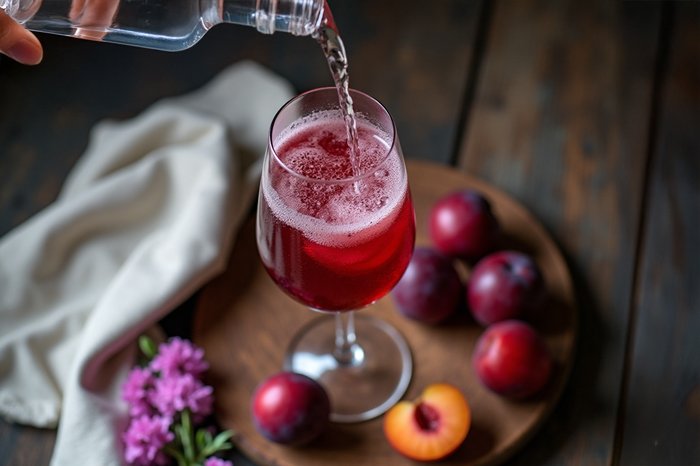Apparently a provocation, but actually a proposal: why,” reasons Daniele Cernilli, “in order to make a low-alcohol wine, do we not allow dilution with water?
The act of “watering down” wine has always been a widespread practice. Since the time of the Ancient Romans there existed the figure of the “magister simposii, arbiter bibendi” who was the one who determined at banquets with how many parts of water the wine should be diluted. “Merum,” unwatered wine, was the stuff of drunks. Of course, the wine of that era was different from ours, it might vaguely resemble Vermouth, and so dilution might have been advisable.
Wine, and this time with “gazzosa” (soda water), but also with “acetosa” (sparkling in Roman dialect) water, was the way people commonly drank in taverns until at least the middle of the last century.
All this is to say that adding a little water to wine is something that has been used to do for centuries, if not millennia. An aficionado may turn his nose up at it, but that is how it has been and continues to be in more “popular” consumption. Personally, I would not do it with a high quality wine, but sometimes, with some acidic and unpretentious white, perhaps in the summer, I would not feel like criticizing those who do it.
Water and alcohol then have another way of meeting and in a sense working together. It occurs in the production of spirits, which as soon as they are made have very high alcohol contents, even above 80°, but which are then cut with distilled water down to 40-43°, which is the most common level for Cognac, Whisky, Rhum, Vodka or Grappa.
Dilute the wine with water
You may wonder why all this reasoning. Because, returning to the subject of partially dealcolated wines, it occurred to me that perhaps a much simpler solution could also be imagined. If dilution with water – water and wine – has worked in the past, if it is even the basis for the production of distilled spirits, why not try it with wines as well? With the simpler ones, first of all.
Without using vacuum filtrations done with very expensive machinery, without using seven liters of water per liter of wine. Simply using distilled, very natural, non-polluting, inexpensive water. Without having to add sugars to sweeten otherwise uninviting wines, as is done in the production of even partially dealcolated wines.
I think someone has already advocated this in the recent past, at least let’s try it and see if it works. For now it is an illegal practice, a kind of fraud, so much so that there is a Roman ditty that imputes to the innkeeper that he really put water in the wine, which is the reason why he will not get paid. But if it is legal to dealcolare today, why shouldn’t diluting also become legal?




